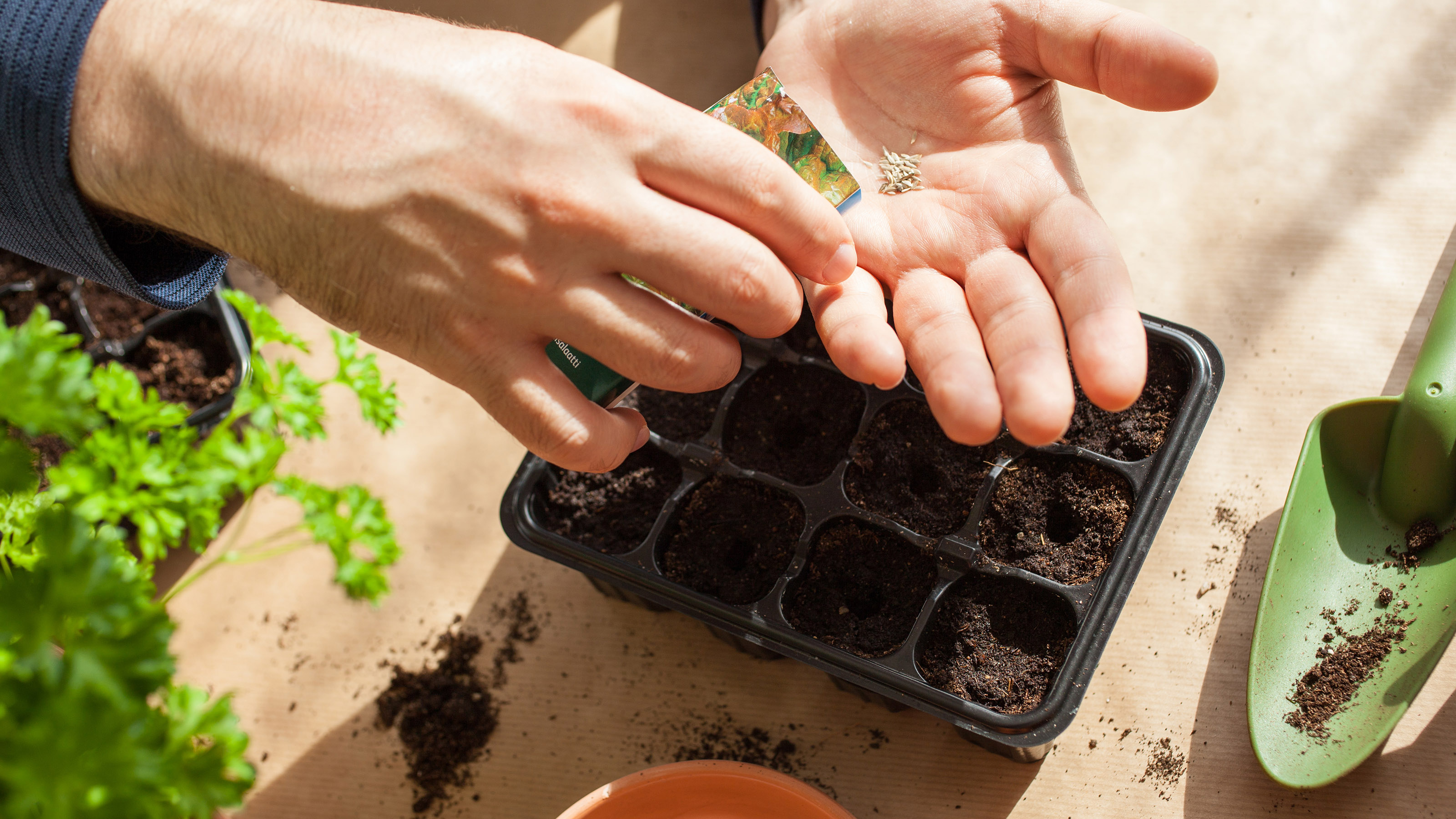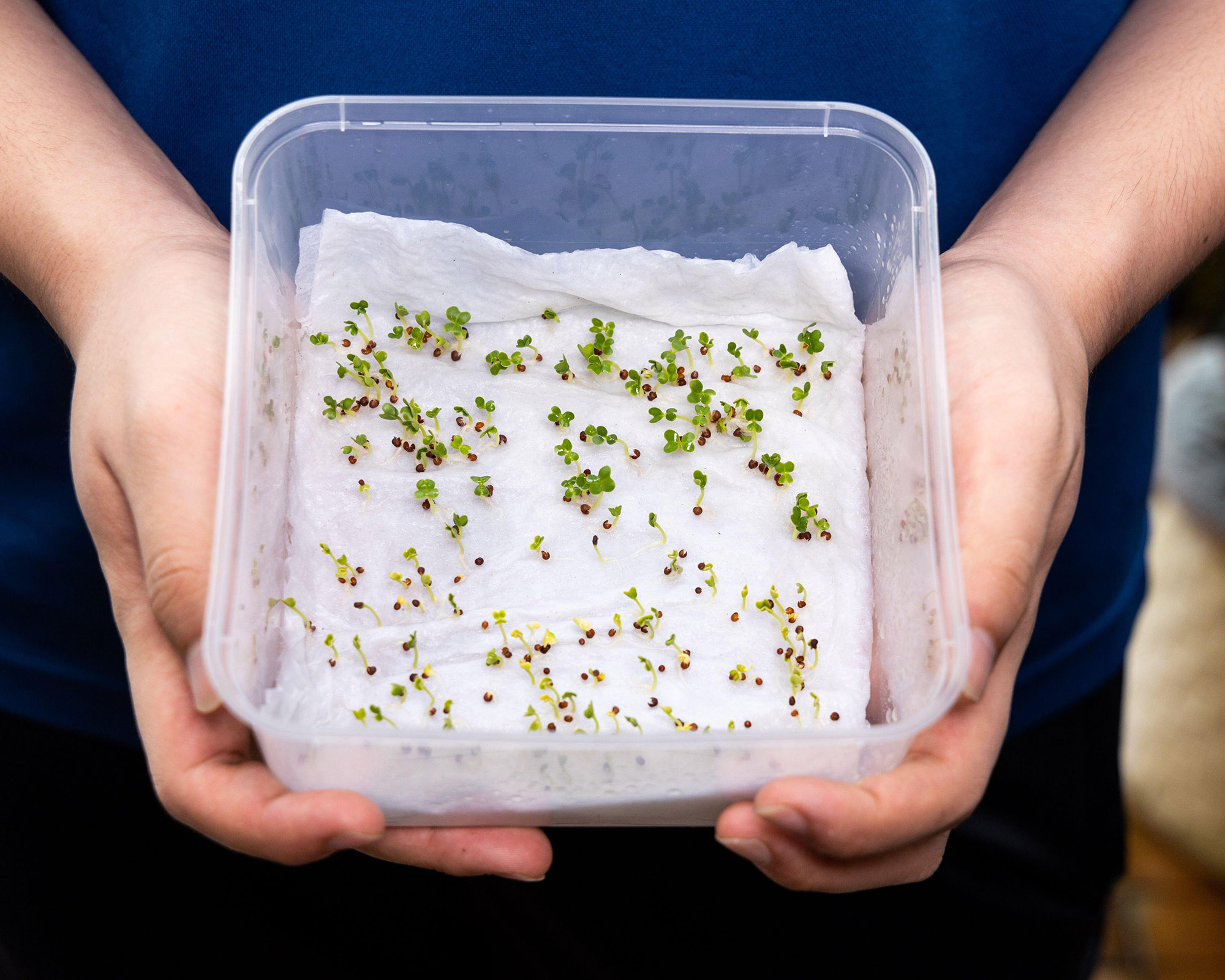Check Before You Sow! – 3 Easy Seed Viability Tests Used By Experts
Get your growing year off to the best possible start by making sure your seeds will germinate. These simple tests will work for flower and vegetable seeds


Do you have seeds leftover from last year that you would like to plant? Or are you asking the question: Will expired seeds still grow? Then, it’s important to check if they’re still viable before putting the time and effort into seed starting.
While it’s tempting to simply plant old seeds, if they fail to germinate then you will be left feeling disappointed and have wasted precious time.
‘No harm will come to you from using old seeds, but as seed viability decreases over time inevitably you won’t get such a good germination rate,’ says Matt James, a garden designer, horticulturist, and author of How To Plant A Garden.
Storing seeds properly will extend the lifespan of many seeds by a year or more, so invest in some seed envelopes and airtight containers.
‘Some seeds do last longer than others if they’ve been stored in a cool, dry, dark place. Lettuce can last for five years, peas and beans for at least three,’ adds Matt.
If you have an excessive amount of old seed then don’t throw it away – there are some creative ways to use old seed that will minimize waste.
However, if you hope to avoid buying all new seed, then these easy seed viability tests will help you to check if it is still worth planting.
Gardening tips, videos, info and more delivered right to your inbox!
Sign up for the Gardening Know How newsletter today and receive a free copy of our e-book "How to Grow Delicious Tomatoes".
1. Drop the seeds in water
The quickest – though least reliable – method to test seed viability is simply to drop them into water and see if they sink or float.
‘This is an easy way to test larger seeds, such as beans and peas,’ says Matt. ‘If more than half float to the top then it’s best to use a fresh packet.’
You can still plant the seeds that sink, but discard the seeds that float, as they are unlikely to sprout.
The sink or float method is good when you need to plant larger seeds quickly, and don’t have time to wait for slower methods. However, it is not reliable with every type of seed – especially smaller seeds – and many gardeners have reported mixed results.

2. Sprinkle them onto damp paper towel
The damp paper towel method is a much more effective seed viability test, particularly for smaller seeds.
‘Sow a pinch of seed onto a damp paper towel, then place it in a plastic bag in a warm spot,’ explains Matt.
Instead of using a plastic bag, you could also place your paper towel onto a plate or tray and use plastic wrap over the top.
Either test each type of seed onto separate paper towels that are clearly labeled, or sow different seeds into thin stripes on the same piece of paper.
Position the seeds in a warm spot indoors and make sure the paper towel does not dry out.
‘If after 7-10 days less than half of the seeds have germinated, then buy a new packet,’ says Matt.
You can still plant the seeds if desired, but the more seeds fail, the more you will have to sow to get a decent germination rate.
3. Just plant them
The easiest way to check seed viability is simply to plant them – although this test will take the longest time, so is best suited to fast-germinating seeds, such as cosmos, marigolds, and salad leaves.
Simply fill a tray or small plant pots with potting soil, then sow your seeds as per the pack instructions.
Sow them more densely than usual, to increase your chances of getting a decent crop, but but not too thickly as it will make thinning out harder.
Cover the tray with a plastic lid, then position in a warm spot and do not allow the potting mix to dry out. This should be kept moist but not soggy, or the seeds could rot.
If after two weeks the seeds haven’t germinated then buy some new ones and reuse the potting mix.

Melanie is an experienced gardener and has worked in homes and gardens media for over 20 years. She previously served as Editor on Period Living magazine, and worked for Homes & Gardens, Gardening Etc, Real Homes, and Homebuilding & Renovating. Melanie has spent the last few years transforming her own garden, which is constantly evolving as a work in progress. She is also a passionate organic home grower, having experimented with almost every type of vegetable at some point. In her home, Melanie tends to an extensive houseplant collection and is particularly fond of orchids.
-
 Looking For Plants To Give You The Soft And Fuzzies? Try These 5 Fuzzy Leaf Plant Options
Looking For Plants To Give You The Soft And Fuzzies? Try These 5 Fuzzy Leaf Plant OptionsLovers of texture, drama, silver foliage and tactile plants will adore these special sensory garden additions. These fuzzy leaf plant options will leave you all aglow
By Susan Albert
-
 Get Ready For A Summer Of Hummers! Grow These Full Sun Hummingbird Plants and Flowers
Get Ready For A Summer Of Hummers! Grow These Full Sun Hummingbird Plants and FlowersIf you’re lucky enough to enjoy a sunny backyard, make sure you are maxing out on your pollinator opportunities and grow these full sun hummingbird plants and flowers
By Tonya Barnett